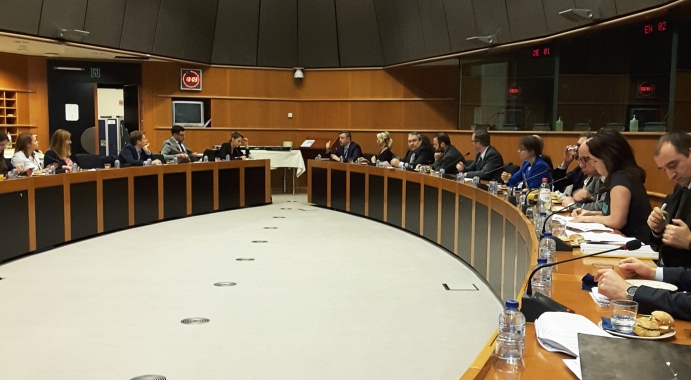How to reach real energy efficiency of buildings in a cost-effective way?
Highlights from the lunch seminar in the European Parliament
Brussels, 29 March 2017 | Published in Energy
In order to stimulate the dialogue in relation to the revision of the EED and the EPBD, MEPs, Jakop Dalunde and Fredrick Federley, in collaboration with Housing Europe, the European Property Federation (EPF) and International Union of Tenants (IUT) hosted a lunch seminar in the European Parliament on 22 March devoted to discussions on how the EED and the EPBD could promote a coherent and holistic approach to reducing energy use in buildings in a cost-effective way.
What are the respective roles of building owners and residents? What is the energy saving potential of individual metering and billing compared to energy efficiency renovations? In what ways can consumers be empowered?
Housing Europe Deputy Secretary General, Julien Dijol said that the ‘Clean Energy For All Europeans’ package can support a fair energy transition if it helps to:
- Adopt evidence-based national strategies for the renovation of the building stock bringing together supply and demand for renovation, regulation and finance, with the view to achieve affordability for both tenants and owners (EPBD)
- Look beyond the buildings and consider the neighbourhood as the right level to design sustainability measures such as electro mobility (EPBD) and energy self-consumption (RED)
- Consider the cost effectiveness of measures related to new requirements (for instance on metering) as crucial criteria because it will guarantee timely and effective implementation as well as increase the social acceptance (EED)
- Promote the use of renewable energy in particular via decentralized energy production systems (RED)
- Support this integrated approach by developing the relevant skills in the field of demand (building owners) and supply (renovation companies) of renovation as well as finance (loans and subsidies) and regulation (related to split incentives)
Our member in Sweden, SABO that was involved in the preparation of the meeting, suggests to revise the Article 9 of the EED to secure energy savings in Sweden. You may read their position in their opinion piece on BlogActiv.